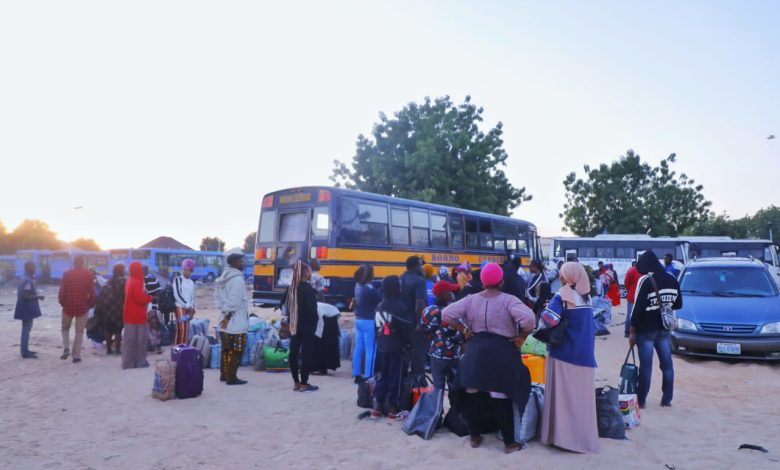
Governor Babagana Umara Zulum of Borno State has approved free transportation for 630 families to their various states for the Christmas festivities.
The move aims to alleviate citizens’ financial burden, especially amid the recent subsidy removal.
Mr. Emmanuel Egwudike, the Coordinator of Ohanaeze All Progressives Congress (APC) Support Group, praised the governor’s initiative, highlighting the consistent support provided to non-indigenes and widows during Christmas and New Year celebrations since 2020.
He emphasized that Zulum’s administration consistently aids the most vulnerable, ensuring they can travel during festive periods.
His words: “He has been doing this since 2020. Every Christmas, he makes sure that every non-indigene, especially the most vulnerable, can travel.
“Due to hardship and economic situations, as well as subsidy removal and an increase in transportation, a lot of families wouldn’t be able to get themselves to celebrate Christmas in their state without this gesture from Zulum’s administration.
“You can see the number of people that are here at the park and the joy in the faces of the people, which is the mood of happiness.
“From the record we have, over 630 families will be going to their various homes to celebrate this Christmas, and this is something that is quite appreciated by all non-indigenes in the state.
“This is what is expected from every governor because, when we talk about unity, it is beyond lip service. This is an avenue to cement the purpose of the people, and this will strengthen the unity in the state.”
President of the Tiv Community in the state, Mr Abraham Kaanti, said the governor had exhibited his love for the downtrodden and the less privileged by this gesture.
He added that the governor’s gesture came when many had lost hope of travelling home for the festivities.
Also speaking for the Yoruba Constituency in the state, who are among the beneficiaries, Chief Saka Ganiyu Abiodun expressed gratitude to Zulum for the gesture, saying that the governor is known for not wanting to see people suffer.
He said the selection of the beneficiaries was made on the vulnerability of each of them, especially those who wished to go home but could not afford the cost of taking themselves home.
